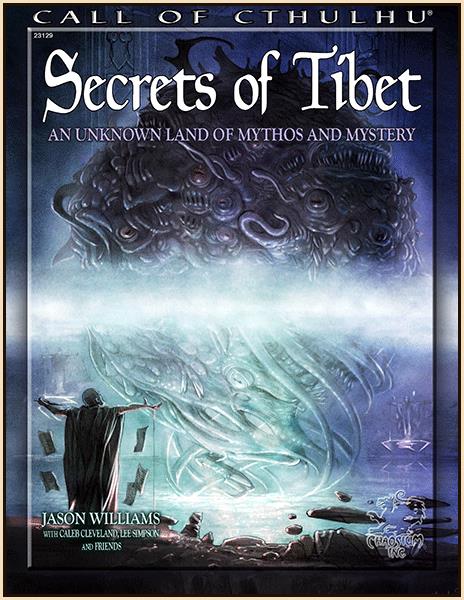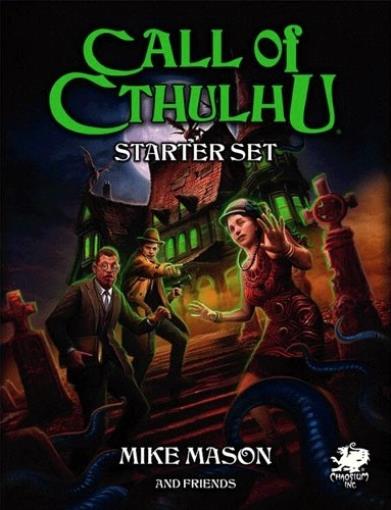

See your Dark Personality trait for the suggested stress and breakdown behavior. If you roll under your DST total, the character suffers a Breakdown for 1d4 rounds.

Each time they gain 5 or more DST points, make a DST roll. When a character's DST is equal or greater than half their POW, the character becomes nervous and their behavior starts to reveal hints of their Dark Trait.
CHAOSIUM CALL OF CTHULHU FULL
While a character's DST is below half of your character's POW, the character is composed and in full control of their actions, and can choose to ignore their Dark Personality and keep it hidden. If your character is used to such encounters, like a soldier used to carnage of war, lower the dice size by one step (1d3 is lowered to 1). When the Keeper puts the characters in an encounter such as exploring a dangerous location that induces dread and stress, or runs an action sequence such as a chase or a fight, once the encounter ends the Keeper makes each player roll a dice formula (usually 1d3 to 1d6+1) and each player add the result to their DST total. Use similar damage formula as those presented in the Keeper's Handbook, pg. Other difficult situations and horrific encounters that are not some unexplainable supernatural phenomenon, cause your character to gain DST points instead of losing SAN points. Anytime the character makes a SAN roll, whether they make or fail the roll, they roll the failure dice formula and gain DST points equal to the result. In addition to Sanity points (SAN), each character has Distress points (DST). If you have a complete breakdown, then the Keeper may take control over your character and dictate their behavior under stress. When your character has a breakdown and suffers an Breakdown, you must follow the suggested responses related to your Dark Personality trait. The exhibit are minor, however can be identified with a Psychology roll. When your character is nervous or stressed out their behavior starts to change and they start to exhibit signs under stress related to their Dark Trait. You can also choose more than one trait, but one of them is considered dominant and applies in an event of an Breakdown. Some Dark Traits are more likely to develop among characters who live a physically or mentally demanding lifestyle, and there are separate random ranges for the one that best fits your character. The chosen Dark Trait should be kept secret from other players until revealed through the character's actions under Distress. You can roll for one, or with Keeper's permission pick any that fits your character, or even come up with a new one following the format in the table. When creating a character, you must choose a Dark Trait. However, unlike Sanity, characters have ways to relieve Distress when given opportunity to unwind. Instead, such events puts them under heavy stress that reveals their true nature.ĭuring an adventure there are can be situations that cause gain of Distress without loss of Sanity - difficult decisions, lack of resources, complications of plans, facing dire consequences, or the implications of a critical mistake. Unlike classic Call of Cthulhu where any horrific display causes loss of Sanity, whether supernatural nature or not, in realistic horror the impending danger and escalating risks do not drive people mad. It is best fit for modern and historical periods or settings, such as Down Darker Trails and Cthulhu Dark Ages, where characters may be hardy and used to man-made horrors. These rules are intended to add psychological realism to the Sanity rules in Call of Cthulhu. Any Luck points that exceed that maximum are lost.
CHAOSIUM CALL OF CTHULHU PLUS
If a player accomplished a spectacular roleplaying feat during their character's Bout of Madness, Indefinite Madness or Dark Trait Breakdown, or they follow up one action suggested by the Keeper into a great scene, they regain 5 Luck points instead rolling on one 1d4 dice roll related to gaining Luck points.Įach character's Luck points have a maximum equal to their starting Luck points plus 10. The Keeper rolls the dice in secret without revealing their number, and gives each player the total value. Each character who has an Indefinite Madness regains an additional 1d4 Luck points. Each character who experienced a Dark Personality Breakdown during the session regains an additional 1d4 Luck points. Each character who experienced a Bout of Madness during the session regains an additional 1d4 Luck points. In campaigns intended to last longer than 4 to 6 sessions such as published campaigns, players should have a way of regaining Luck Points and should not be discouraged from using them during the length of the campaign.Īt the end of each session, each character regains 1d4 Luck points.


 0 kommentar(er)
0 kommentar(er)
